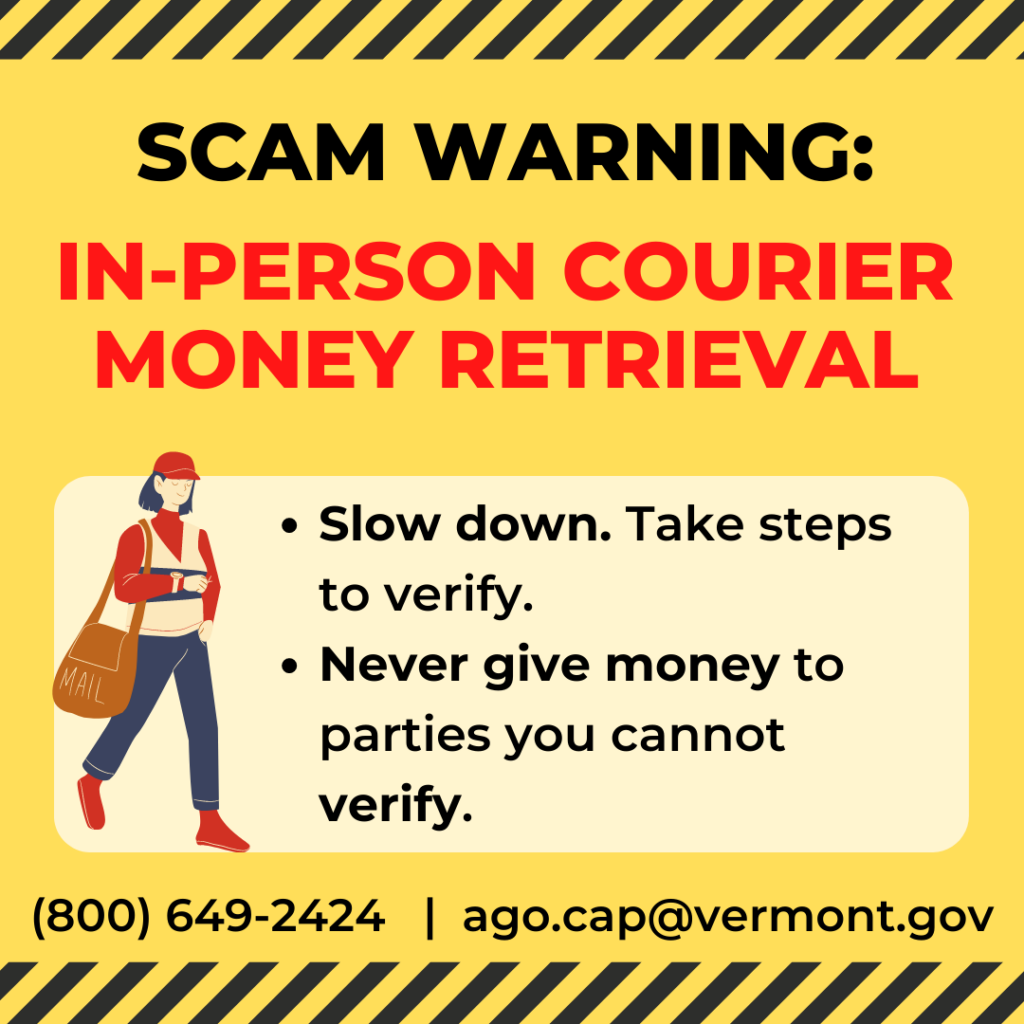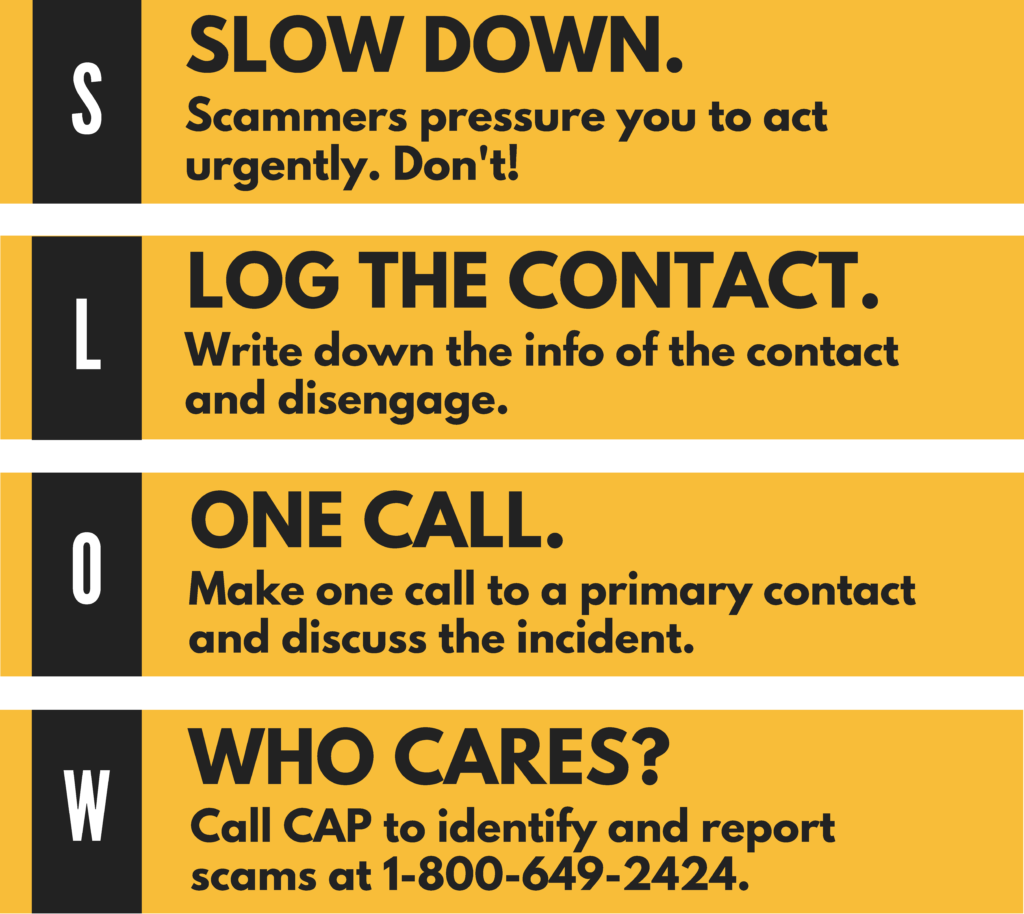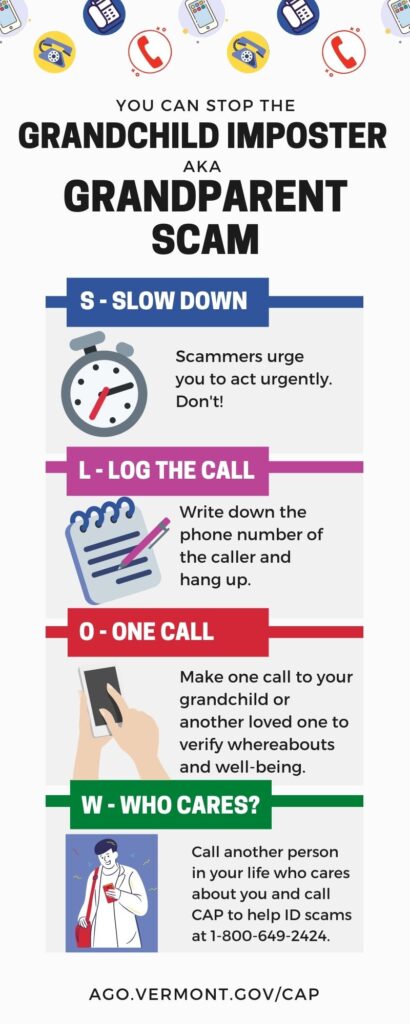BURLINGTON – Attorney General T.J. Donovan is warning Vermonters about a new variation of the family emergency scam in which scammers are demanding that cash be handed over in person to a “courier.” By presenting a fake emergency in which their loved one needs help getting out of trouble, scammers pressure panicked family members, including grandparents, into acting before they can realize it’s a scam. Until recently, scammers took a hands-off approach in collecting money, demanding gift cards, wire transfers, or virtual payments. Now, the Attorney General’s Consumer Assistance Program (CAP) is receiving reports that scammers are enlisting “couriers” to collect cash directly from unsuspecting family members at their homes to resolve the fake emergency. Vermonters who receive these calls should resist the urge to act immediately and take steps to verify the caller’s identity.

These scenarios are designed by scammers to be emotional and high pressure. If you are presented with this type of scenario—pause; hang up the phone; and call a friend or family member to verify. Do not give money to someone coming to your home. Instead, call local law enforcement and the Consumer Assistance Program to identify and report the scam.
Attorney General Donovan
While the family emergency scam has long plagued Vermonters, CAP is raising awareness about the spread of “couriers” coming to Vermonters’ homes to collect cash. In the last week, CAP has received 4 family emergency scam reports from Vermonters who were told that an individual or a “courier” would retrieve cash from them at their homes—3 of these scams resulted in monetary loss. Common elements of this scam include:
- Claims of a “gag order” being in place which requires secrecy.
- Cash is needed to pay for a “bond” or a “bail bond agent.”
- A loved one was involved in a “car accident,” sometimes related to traveling for a COVID-19 test.
CAP has found that scammers are becoming more sophisticated in their contacts and appear to be using internet searches and public social media profiles to research the locations of family members. By searching telephone numbers and addresses on the internet and scanning popular social media sites, scammers can learn about familial relationships, ages, and geographic locations. Scammers then use this information to make the scam seem credible.
CAP advises Vermonters to slow down and follow a plan to not get scammed. Use the SLOW method in urgent situations:

S – SLOW DOWN. Scammers pressure you to act urgently. Take time to regain your calm.
L – LOG THE CONTACT. Write down the phone number of the contact and disengage.
O – ONE CALL. Make one call to a primary contact, such as a friend or family member, and discuss the incident.
W – WHO CARES? Call CAP to identify and report scams at 1-800-649-2424.
If you or someone you know has lost money to this scam, contact law enforcement and report the scam to CAP at 1-800-649-2424. Learn more about family emergency scams by watching CAP’s Avoiding the Family Emergency Scam video and reviewing steps to verify at https://ago.vermont.gov/cap/family-imposter/.
Reference: https://ago.vermont.gov/blog/2022/06/02/scam-alert-beware-of-couriers-collecting-cash-in-family-emergency-scam/

